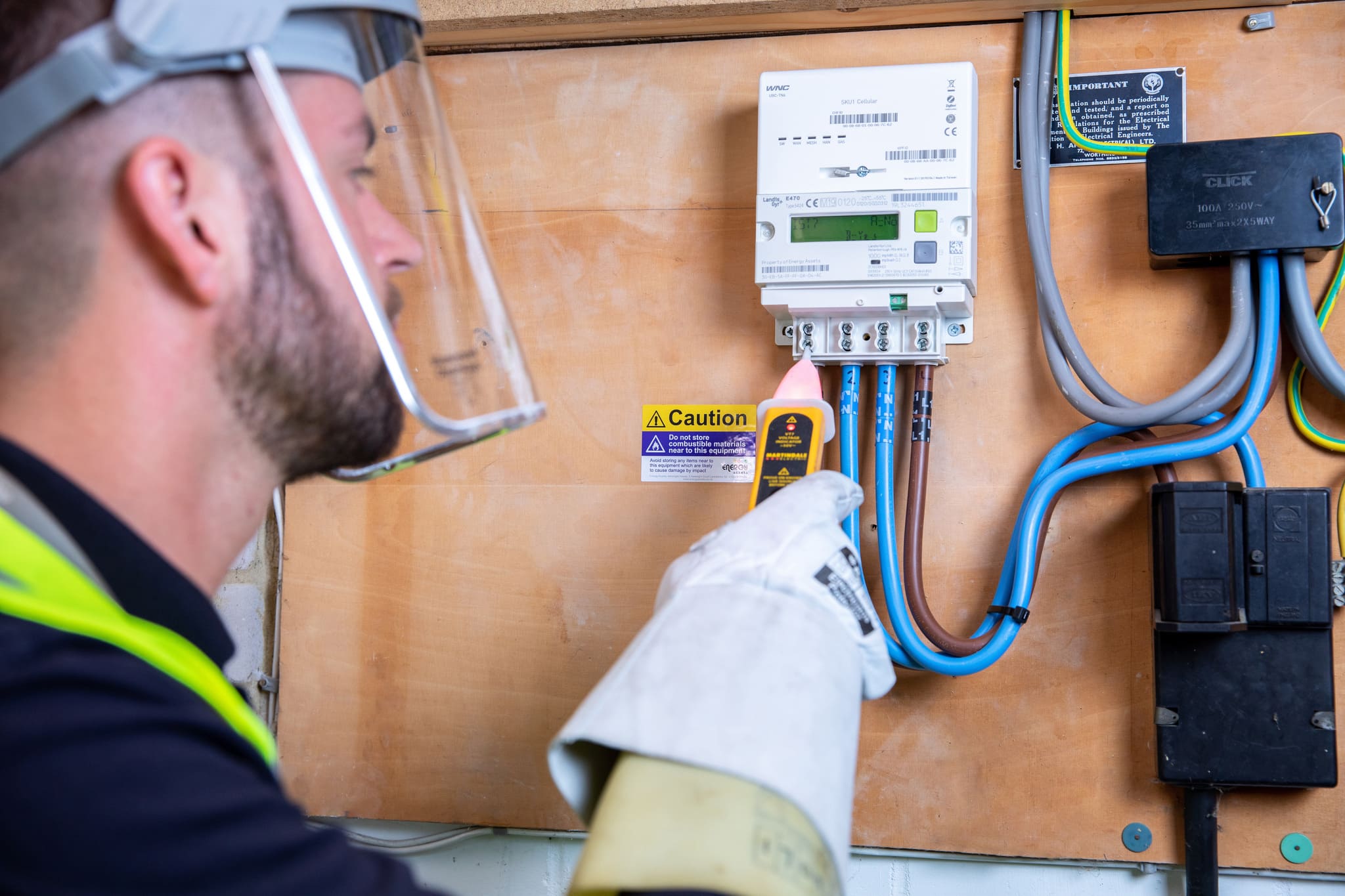Last updated: 15th April 2024
Energy Bill Discount Scheme (EBDS)
The Energy Bills Discount Scheme ran for 12 months from 1 April 2023 to 31 March 2024. The scheme is now closed.
This scheme replaced the Energy Bill Relief Scheme which supported businesses and organisations between 1 October 2022 and 31 March 2023.
How did the EBDS work?
Those who were eligible for the EBDS received a discount on the wholesale price of each unit of energy they use. Please note this was not the actual retail price displayed on the invoice. The discount came into effect when the wholesale price was above a threshold set by the government.
The discount applied was the difference between the wholesale price and the threshold, up to a maximum discount, as follows:
Electricity: Threshold is 30.2p/kWh, Maximum Discount is 1.961p/kWh
Gas: Threshold is 10.7p/kWh, Maximum Discount is 0.697p/kWh
The maximum discounts were significantly lower than the average EBRS discounts, meaning that most eligible businesses saw a reduction in support from this new government scheme.
How do I apply for the EBDS discount?
The scheme is now closed. Any customer that was eligible would have automatically has the discount applied, starting with their April 2023 invoice, sent in May 2023.
Where would I find the EBDS discount?
In the same way that the EBRS was issued, the discount appeared as a one-line adjustment detailed on the breakdown of charges page of your invoice. The item description would be labelled ‘Energy Bill Discount Scheme’.
Additional Support Applications for Energy and Trade Intensive Industries (ETII)
Under the Energy Bills Discount Scheme, the Government provided a baseline discount to support energy bills for eligible non-domestic customers in Great Britain and Northern Ireland. As with the original Energy Bill Relief Scheme (EBRS), suppliers automatically applied reductions to the bills of all eligible non-domestic customers. However, action was required to get a higher level of support. Eligible Energy and Trade Intensive Industries (ETII) must have applied via gov.uk by 25 July 2023 to receive this higher level of support. The complete list of eligible sectors can be found here.
Need further guidance?
Below are some additional FAQs that are helpful to know about the EBDS. Further information is also available via the government website here.
We have created some useful resources, including advice on how to reduce your energy bills, additional financial support and understanding the impact of wholesale energy costs. For more information, please take a look at the following articles:
> Energy Saving Advice for Small Businesses
> Energy Bills Payment & Support
> Wholesale Energy Costs Explained
Existing – Energy Bill Relief Scheme (EBRS)
The Government’s Energy Bill Relief Scheme (EBRS) provided support to businesses, charities and public sector organisations whose energy bills have been significantly inflated from the global energy crisis.
The Energy Prices Bill, introduced in Parliament on the 12th October 2022, provided the legislative footing to ensure that UK consumers and businesses receive support with their energy bills via the EBRS. It means that all non-domestic energy users on fixed contracts agreed on or after 1st December 2021 (previously 1st April 2022), as well as those on default or variable tariffs, will receive a discount on wholesale electricity and gas prices over the Winter period. It ran for an initial six-month period, from 1st October 2022 to 31st March 2023.
For fixed priced contracts, the discount is the difference between the Government Supported Price for the wholesale energy and the Relevant Wholesale Price when the contract was agreed. The Government Supported Price is the rate that the Government have deemed appropriate for customers to pay for their wholesale costs. This is fixed at 21.1p/kWh for electricity and 7.5 p/kWh for gas. For clarity this does not mean, for example, that your retail unit price will be set at 21p/kWh.
The Relevant Wholesale Price will differ based on when the contract was agreed, reflecting movements in the wholesale electricity market.
For default or variable contracts, the discount will be the difference between the Government Supported Price and the Relevant Wholesale Price, subject to the maximum discount which is 34.5p/kWh for electricity and 9.1p/kWh for gas.
The Government has also introduced a floor price (set at the Government Supported Price) to ensure consistency of support and avoid unintended consequences. This means any retail unit price for all costs will not fall below the Government Supported Price once discounts have been applied.
In all cases, the total discount you receive will vary depending on the amount of energy used during this period.
Additional customer FAQs
The scheme is now closed. If you agreed a fixed contract on or after 1st December 2021, or you were on a deemed or variable tariff then you would have been eligible for the discount. If you did not meet the criteria set by the Government, then you will not have been eligible.
No, you didn’t need to apply for the EBDS discount, if your business was eligible it would have been automatically added to your account and shown on your April 2023 bill (sent early May 2023) onwards.
The discount applied to the wholesale price of each unit of energy you use. Please note this was not the actual retail price displayed on your invoice. The discount came into effect when the wholesale price is above a threshold set by the government.
The discount applied was then the difference between the wholesale price and the threshold, up to a maximum discount, as follows:
Electricity: Threshold is 30.2p/kWh, Maximum Discount is 1.961p/kWh
Gas: Threshold is 10.7p/kWh, Maximum Discount is 0.697p/kWh
It’s important to note that the price you pay for your energy is made up of the wholesale cost and other non-commodity costs, also known as pass-through costs. The EBDS only applied to the wholesale part of your supply. In the same way that the EBRS was issued, the discount appeared as a one-line adjustment detailed on the breakdown of charges page of your invoice. The item description was labelled ‘Energy Bill Discount Scheme’
Discount tables that help to explain how the EBDS was calculated have been provided by the government and can be viewed via the website here. The relevant wholesale price, threshold price and eligible discounts can be viewed across all contract types.
If you pay for your electricity by Budget Plan, the EBDS discount may have meant that we needed to adjust your fixed payment amount. You would receive a separate notification from us if this is the case, confirming your new Budget Plan payment amount.
Some sectors, known as Energy and Trade Intensive Industries, who are particularly vulnerable to high energy prices will have received a higher discount on the first 70% of their energy usage, as follows:
Electricity: Threshold is 18.5p/kWh, Maximum Discount is 8.9p/kWh
Gas: Threshold is 9.9p/kWh, Maximum Discount is 4p/kWh
The remaining 30% of consumption will be subject to the non-ETII discount. The list of sectors included in the ETII and therefore eligible for the higher discount can be viewed here.
Eligible businesses will need to apply for the higher discount via a portal that will shortly be available via the government website here. They will need to provide information on their organisation, energy supplier, relevant energy supply contract(s) references and applicable metre point references.
Under the EBDS, all eligible non-domestic heat networks serving domestic end consumers would be eligible for a higher level of support. This was delivered by a specific Minimum Supply Price without a maximum discount or wholesale price thresholds.
The scheme supported the wholesale element of a heat network’s energy supply, up to the point where the Minimum Supply Price is achieved. The Minimum Supply Prices are set at 34p/kWh for electricity and 7.83p/kWh for gas. Businesses need to register and gain approval for the higher level of support here.
Once approved, heat networks would receive the new discount rate from their energy suppliers and are responsible for passing the discount on to their domestic customers. This aims to ensure that customers on heat networks do not face significantly higher heat and hot water bills than equivalent households supported by the Energy Price Guarantee (EPG).
Ofgem has published guidance on how park home residents could apply for support with their energy bills. This information can be found on the Ofgem website here.
Please get in touch with our Customer Services Team on 01903 703400 or email customerservices.business@smartestenergy.com. We will check your eligibility for a discount against the criteria set by the Government and if required apply and backdate any discounts owed.
By working directly with the Government and the guidance set by the Department for Business, Energy and Industrial Strategy (BEIS), we ensured our customers got the appropriate support on their bills. The process has been audited by DESNZ to ensure we are issuing our customers with the correct amount of discount.
We have created some useful resources, including advice on how to reduce your energy bills, additional financial support and understanding the impact of wholesale energy costs. For more information on this, please visit our main Info Hub here
As a Supplier, SmartestEnergy Business Limited will provide data to the Department for Business, Energy & Industrial Strategy (BEIS) under the Energy Bill Discount Scheme (EBDS) and Energy Bill Relief Scheme (EBRS). The EBDS supports businesses and may capture personal data for small or micro businesses, for example, those who are operating businesses as self-employed and not operating as a limited company.
For full details of this processing activity, the relevant BEIS Privacy Notice can be found here and the SmartestEnergy Business Privacy Notice can be found here.



